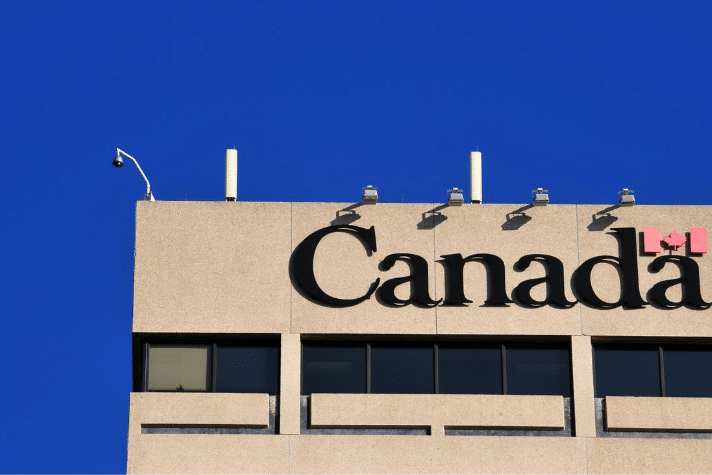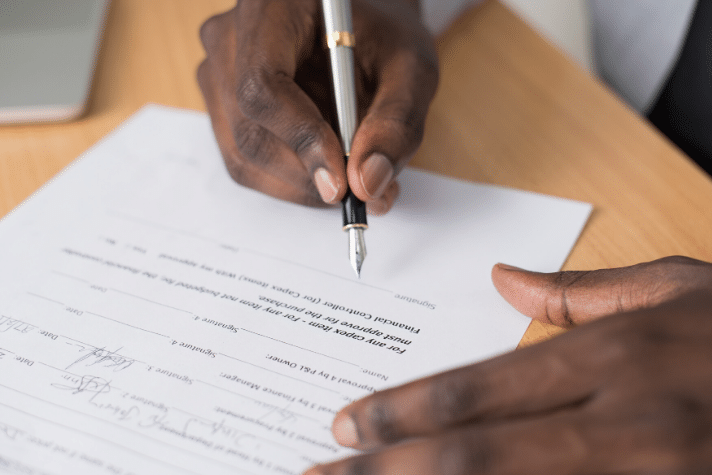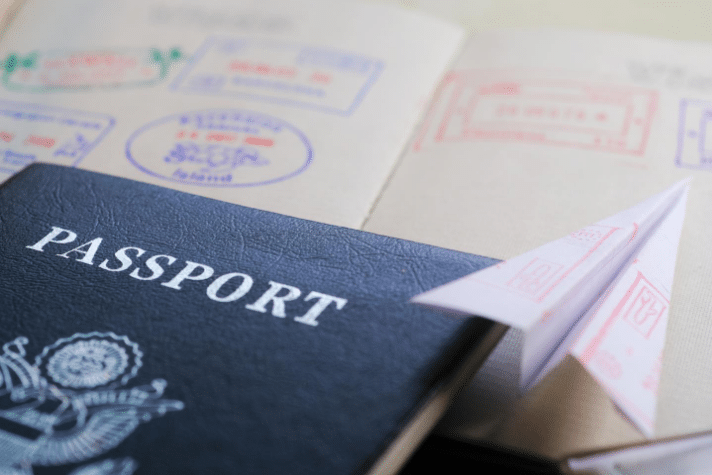Making a refugee claim
Are you seeking asylum in Canada?
Photo: ©UNHCR/Andrea DiCenzo
Seeking asylum in Canada during the COVID-19 pandemic
Please note that the situation is quickly evolving, and that while UNHCR will endeavour to update the below information regularly, asylum-seekers should also verify the information with Government authorities.
Latest update: 14 December 2020
For those intending on claiming asylum in Canada
For those travelling to Canada by plane
The Canadian government has applied restrictions to air travel, effective 18 March 2020. Subject to limited exceptions, air carriers are required to deny boarding to any person who is not a Canadian citizen or permanent resident, unless that person has resided in the U.S. for the past 14 days.
Links to information:
If you fall under one of the exceptions and arrive at a Canadian airport, procedures for making a refugee claim remain unchanged. Certain quarantine or isolation measures may apply following a medical screening. All persons entering Canada from another country, including the U.S., are currently asked to self-isolate for 14 days.
ArriveCAN
As of November 21, 2020, you must use ArriveCAN before checking in at the airport or crossing the border to submit your
- travel and contact information
- quarantine plan
- COVID-19 symptom self-assessment
Please bring your ArriveCAN receipt (electronic or paper) with you to show the border services officer upon arrival.
Find out the latest travel advice from Health Canada for travellers arriving in Canada.
For those coming to Canada through a land border
If you make a refugee claim at an official land port of entry
The refugee process at official land ports of entry remain unchanged. Under the Canada–U.S. Safe Third Country Agreement (STCA), persons coming to Canada from the U.S. cannot make a refugee claim at official Canadian border posts unless they qualify for an exception to the Agreement. Learn more about who can claim asylum at the border and how to prove your links to family members in Canada.
If you are considering coming through the Southern Ontario region, this map of refugee support agencies located on both sides of the border (in the U.S. and in Canada) may be of assistance to you. While we try to provide only links to useful, reputable and safe websites, we have no control over the information provided by this site. This link does not imply a recommendation by UNHCR for all the services referenced on the site. Content may change without notice and may happen before we have the opportunity to remove a link. UNHCR assumes no responsibility for any errors or omissions in the information provided.
If you make a refugee claim upon crossing the border in-between official border posts
The Canadian government has applied border restrictions, effective 21 March 2020. Asylum-seekers who enter Canada irregularly in-between official land border posts will temporarily be sent back to the United States and be able to come back at the Canadian border once the measure is lifted.
The above-mentioned restrictions do not apply to asylum-seekers who are:
- American citizens;
- Unaccompanied minors who do not have a parent (father, mother or legal guardian) in the United States and have neither a spouse or a common-law partner; and
- Habitual residents of the United States who are not citizens of any country (“stateless persons”).
Read section 5 of the Order for the list of exceptions regarding asylum claims made at the border. Note that asylum-seekers allowed to enter Canada to pursue their claim will be requested to self-isolate for 14 days.
For those who are already in Canada
You can make a refugee claim at an Immigration, Refugees and Citizenship Canada (IRCC) inland office. Note however that IRCC is no longer receiving refugee claims or interviewing asylum-seekers in person until further notice. You are required instead to send your request by email to: IRCC.RefugeeClaim-Demandedasile.IRCC@cic.gc.ca. You will receive an automated reply requesting additional information.
Once your request has been received and processed, you will receive an Acknowledgement of Claim document by email. This document serves as proof that you have made a refugee claim and that you have medical coverage (Interim Federal Health Program coverage). When the office re-opens, you will be scheduled to return for fingerprinting and an interview. Learn more about how to submit a refugee claim in Canada on IRCC’s website.
Starting 21 September 2020, IRCC will start piloting the gradual resumption of in-person services at the following offices: Vancouver, Calgary, Edmonton, Hamilton, Niagara Falls, Etobicoke, and Montréal. Services are currently by appointment only. If you already had an interview scheduled with IRCC that was cancelled because of COVID-19 or had submitted a refugee claim by email or at an IRCC office drop box between 16 March and 7 July 2020, IRCC will be reaching out to you to schedule an appointment.
For those who have a pending asylum application before the Immigration Refugee Board (IRB)
Temporary extensions of time granted for the Basis of Claim form
If you claimed asylum at a port of entry (airport, official border post), the IRB has extended the deadline to provide the Basis of Claim (BOC) form, an important document where you explain why you are afraid to go back to your home country:
- If your claim was transferred to the IRB between 4 July and 28 August 2020, you will have until 12 October 2020 to give your completed Basis of Claim (BOC) form to the IRB;
- If your claim was transferred to the IRB on or after 29 August 2020, you will have 45 days to give your completed Basis of Claim (BOC) form to the IRB.
For all other claims, the usual 15-day time limit applies. Read the practice notice on the temporary extension of time limits for filing the Basis of Claim form on the IRB’s website.
Hearings postponed
The Refugee Protection Division (RPD) of the IRB is now scheduling virtual hearings (through videoconference) for all refugee protection claims. That said, any claimants who prefer to have their hearing in person from an IRB office can advise the RPD of this when their claim is scheduled and the RPD will book an on-site hearing for them. The Member presiding over the hearing ultimately retains the discretion to determine the location of the hearing if there are reasons why it may be inappropriate for a given claim to proceed virtually. Find out more about the IRB’s measures related to COVID-19 on the IRB’s website.
Submission of documents
The Immigration and Refugee Board of Canada front offices are closed. Effective immediately, in-person correspondence (hand-delivery) is no longer accepted. The IRB offices in Vancouver, Montreal and Toronto resumed mail and partial registry support functions. Read the instructions on sending correspondence on the IRB’s website.
For those filing an appeal before the Refugee Appeal Division of the Immigration Refugee Board (IRB)
Temporary extensions of time granted
Effective 19 August 2020, the Refugee Appeal Division (RAD) of the IRB reinstates the time limits for filing a notice of appeal or perfecting an appeal that were temporarily suspended on 15 March 2020. This means that a notice of appeal or appellant’s record due between 1 January 2020 to 18 August 2020 inclusive, must be submitted to the RAD by 19 August 2020. Read the practice notice on resumption of time limits at the Refugee Appeal Division (RAD) on the IRB’s website.
Hearings postponed
As of 2 November 2020, the Refugee Appeal Division (RAD) will now schedule virtual hearings for all appeals that require a hearing. Appellants or their representatives will be asked to confirm their availability for the proposed hearing date and can request an in-person hearing if they have specific concerns with holding the hearing virtually. The RAD will consider these requests on a case-by-case basis. Find out more about the IRB’s measures related to COVID-19 on the IRB’s website.
Submission of documents
As of 15 June 2020, the Vancouver office of the IRB resumed mail and registry support functions. Mail services will restart in IRB offices in Montreal and Toronto on 22 June 2020, with partial registry resuming in those same cities on 29 June 2020. From these dates forward, you will be able to provide the Refugee Appeal Division with documents by mail, fax, email or ePost Connect. Reception desks will not be open to receive in-person deliveries. Read the instructions on sending correspondence on the IRB’s website.
For those applying for a Pre-Removal Risk Assessment (PRRA)
IRCC is still accepting PRRA applications at this time. You also have now the option to submit and communicate about your application online
Find out more about PRRA application deadlines on the IRCC’s website.
For those awaiting a PRRA hearing, it may be held either:
- on site at an IRCC office
- remotely, via videoconference
An IRCC officer will determine if a remote hearing is appropriate in your case.
In regards to detained individuals
Precautionary measures have been taken to limit the risk of virus contamination.
Please note the Immigration Division’s (ID) intention to resume in-person hearings on 14 September 2020. Detention reviews and detained admissibility hearings will continue to be conducted primarily by teleconference until further notice due to ongoing health-related restrictions on the transportation of detainees and limitations on access to detention facilities. Read the practice notice on the resumption of in-person hearings on the IRB’s website.
For persons released from detention on reporting conditions
For people in Quebec released from detention with reporting conditions, the office where you had to report is closed from 19 March 2020 for an indefinite period.
As a temporary alternative measure, the persons concerned must now report by calling at 438-340-7985 or 438-340-8117.
Please note that if the phone line is busy, you must call back until you reach an officer. Please note that no voice message will be accepted and that the usual hours must be respected, that is to say from 8:00 am to 12:00 pm and from 1:00 pm to 4:00 pm.
Please note that all other release conditions still apply.
For those who lost their income due to COVID-19
Asylum-seekers may benefit from the Canada Emergency Response Benefit. The federal government will provide a taxable benefit of $2,000 a month for up to 4 months to eligible workers who have lost their income due to COVID-19. Find out more about the eligibility criteria and the application process on the Government of Canada’s website.
Processing of refugee claims and appeals for individuals applying under government of Canada special measure
The Government of Canada announced that, starting December 14, 2020, it will be accepting applications for permanent residence from pending and unsuccessful refugee claimants who worked in Canada’s health care sector and provided direct care to patients during the COVID-19 pandemic. For more detailed information, please consult the Practice Notice: RPD and RAD processing for individuals applying under government of Canada public policies.
Medical assistance
Access to COVID-19 clinics for free contagion testing is open to all people regardless of immigration status.
The Interim Federal Health Program coverage covers all diagnostic tests and treatments for the COVID-19, as well as any other medical situation (with rare exceptions).
For medical assistance about COVID-19, you can reach the following numbers:
- 1-877-644-4545 (Québec)
- 1-866-797-0000 (Ontario)
- 1-888-268-4319 (British Colombia)
- 1-204-788-8200 (Manitoba)
- 1-811 (Alberta)
- 1-811 (Saskatchewan)
Find out the latest information from the Government of Canada on COVID-19.
For more information on additional supports and up-to-date resources in your local community, please refer to your local Public Health Units or municipal information sites.
Seeking asylum in Canada
If you are seeking asylum in Canada, you will find in this section resources to help you understand the Canadian asylum system – from learning more about how to make a refugee claim to finding out what happens when you claim asylum at the border.
If you fear persecution in your country, you may seek protection once in Canada by presenting an asylum claim to the Canadian authorities. Find out who can get refugee protection in Canada.
How to make a refugee claim
You can make a refugee claim either upon arrival in Canada at a port of entry (airport or land border) with the Canada Border Services Agency (CBSA) or inside Canada at the nearest Immigration, Refugees and Citizenship Canada (IRCC) office. The Canada Border Services Agency (CBSA) is Canada’s law enforcement agency responsible for border control. Immigration, Refugees and Citizenship Canada (IRCC) is the department of the Government of Canada responsible for matters dealing with immigration to Canada, refugees, and Canadian citizenship.
Arriving at the border from the United States
Note that the Canadian government has put restrictions on refugee claims made at official land ports of entry. Under the Canada–U.S. Safe Third Country Agreement (STCA), persons coming to Canada from the U.S. cannot make an asylum claim at official Canadian border posts unless they qualify for an exception to the Agreement. Learn more about who can claim asylum at the border and how to prove your link to family members in Canada.
If you make a refugee claim upon crossing the border in-between official border posts, you will be arrested by the police and questioned about your irregular entry. You will then be brought to the nearest official border post to have your asylum claim processed. Find out what happens when you claim asylum at the border.
The process of claiming asylum in Canada
Once you have made an asylum claim, CBSA or IRCC officials will first conduct an interview to verify your identity, perform a security screening and determine if you are eligible to have your asylum claim referred to the Immigration and Refugee Board (IRB), an independent administrative tribunal responsible for making decisions on refugee matters. It is a federal institution that operates at arm’s length from the Government of Canada. Learn more about proving your identity and find out who will decide whether your asylum claim is accepted or rejected.
If your claim is eligible to be referred to the IRB, you will be given a very important document called the Basis of Claim form, in which you will explain why you are seeking protection in Canada. You must fill out the Basis of Claim form within the specified timeframe. The IRB will consider the information you provide in the Basis of Claim form, your testimony at a hearing and other related evidence to decide if you qualify for refugee protection. If you are a refugee claimant preparing for your hearing, get ready with the Refugee Hearing Preparation Guide, a collaborative initiative developed in 11 languages for each region of Canada.
If your claim is not eligible to be referred to the IRB, you may have access to another process called the Pre-Removal Risk Assessment (PRRA), which will be conducted by an immigration officer from Immigration, Refugees and Citizenship Canada (IRCC). Regardless of whether your refugee claim is assessed by the IRB or through a Pre-Removal Risk Assessment (PRRA) by IRCC, the authorities will evaluate your fear of persecution and decide whether or not to grant you international protection.
Please note that in Canada, UNHCR is not involved in the various processes related to individual cases. UNHCR Canada does not offer direct services for asylum-seekers and will refer you to other available services in Canada for assistance should you contact our offices. For more information on where you can ask for help, how to apply for asylum, and what rights and duties you have as a refugee or asylum-seeker in Canada, please visit UNHCR’s Help section.
Donate Today
Please help refugee families in need.











